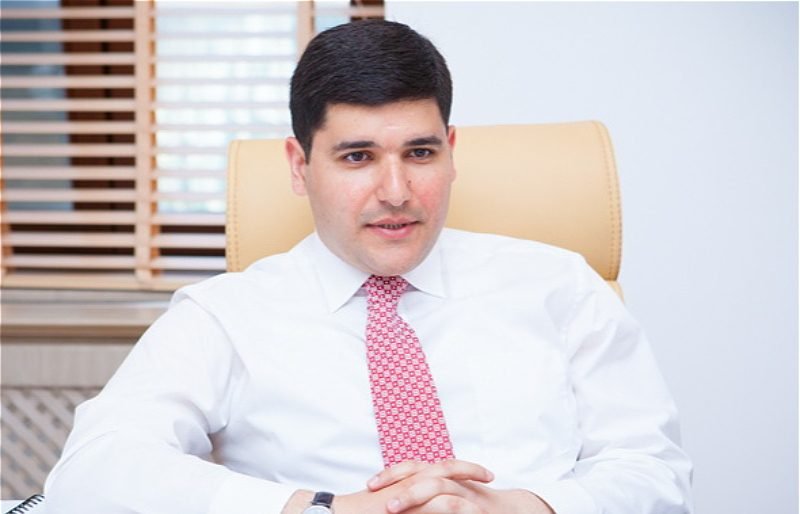On Caliber’s “Vizavi” program, Azerbaijani analyst Farhad Mammadov, head of the South Caucasus Research Center, unpacked what he called the “self-value” of last week’s civil-society trip from Baku to Yerevan-and the political crosswinds that could still buffet a fragile peace process.
Mammadov’s message was blunt: the visit mattered on its own terms. With core principles of a peace agenda now sketched out by Baku and Yerevan, he argued, it falls to opinion leaders to explain that agenda to skeptical publics and to keep the initiative from getting swallowed by disinformation.
“We expected skepticism in both societies,” he said. “Alongside it we see manipulations and even outright fabrications. That, too, we anticipated – and we’re preparing to counter with patient outreach.”
Civil society steps in – because it must
According to Mammadov, the delegation sees an “open window” created by back-to-back government-level moves since the spring and reinforced by meetings in Abu Dhabi and Washington.
The job for non-state actors, he said, is to keep the process visible and practical: meet those who care about peace, propose concrete micro-projects, and show that normalization isn’t theory.
Even the optics matter: “If there is a chance to fly a direct Baku – Yerevan route, we take it. If conditions allow another step, we take that one too.”
He cautioned against “reactive” politics. Peacebuilding needs initiative-sequenced steps that are paced to public absorption, not social-media cycles.
“Dump everything at once and the effect burns out in a week,” he noted. “Stretch it, prove it, normalize it.”
Russia, the “new normal,” and keeping third parties at arm’s length
Asked about Moscow’s role after recent Aliyev – Putin contacts, Mammadov said Azerbaijan has spent the post-2020 period creating facts “on the ground and in diplomacy,” gradually forcing all stakeholders to live with new realities.
Armenia, he added, is now building its own internal “reality” aligned with peace principles – and when both capitals insist the bilateral track is non-negotiable, outside actors have less room to wedge themselves in.
“If Baku and Yerevan don’t leave gaps, third parties have fewer levers,” he said.
The real inflection point, in his view, will be Armenia’s parliamentary elections. A Pashinyan victory would lock in five years of political runway, including a no-impeachment grace period in year one. Azerbaijan’s own electoral calendar offers a parallel span. That window, he argued, is when the sides can both expand cooperation across more sectors and deepen it with concrete decisions.
The election fight Mammadov expects in Yerevan
The sharpest warning came on Armenia’s domestic scene. Mammadov predicted a heavy, professionalized push – “Moldova-style,” as he put it – by pro-Russian networks to shape the Armenian campaign via NGOs, humanitarian pipelines and micro-grants that double as voter-mobilization tools.
The method, he said, is scalable and relatively cheap: “In a small electorate, $50–100 million, funneled cleverly, can move 20–30% of the undecided.”
He framed the current arrests around the church and security services’ counter-moves as “only the beginning,” expecting more assertive state action as money starts flowing. The only truly consequential lever for spoilers, he stressed, is the ballot box in Yerevan; elsewhere, attempts to re-internationalize the conflict have steadily lost altitude.
The West: less about “liberals vs. Trump,” more about levers
On Western pressure, Mammadov downplayed the idea of a coherent “liberal front” geared to derail normalization. He pointed instead to diaspora-driven, parliament-level initiatives in Europe and the U.S.-resolutions and draft “peace acts” that, he argued, often lock in present realities but seed future sanctions triggers aimed asymmetrically at Baku.
Pro-Armenian groups themselves are divided, he noted, with some lobbying to tack past grievances onto forward-looking bills. For now, he said, Baku has “antidotes” – from rights-based advocacy for West Azerbaijanis to methodical engagement with U.S. executive-branch decision makers.
What Pashinyan can still bank before the vote
Can the Armenian premier show voters tangible dividends beyond “guns quiet on the border”? Yes, Mammadov said – but it’s about pacing and packaging.
The announcement that Azerbaijan will allow transit cargo to Armenia via Georgia, followed by Russia signaling it will use the same rail route, is one example. Spotlight the first real trains; then widen the aperture. “You stretch the story,” he said. “Each proof-point needs its moment.”
He added that both societies are only three to four months into a truly new normal; by content analysis alone, the “peace” frame is gradually overtaking “war,” provided actors don’t let the narrative drift back to old reflexes.
Gaza: why Baku might matter – and on what conditions
Addressing reports that Azerbaijani troops could join a future stabilization mission in Gaza, Mammadov called the file “new and delicate” for Baku, but strategically relevant.
Azerbaijan’s military-political ally is Turkey; its strategic partner is Israel. Preventing a kinetic clash between them is a national interest—and one shared with Washington.
If a multinational mission ever materializes, he argued, Muslim-majority contributors with regional credibility will be essential, but only with strict guarantees and a demilitarized operating picture: “No one will send a contingent into the rubble if both sides still have guns. Sequencing, disarmament, and real protection come first.”
The bigger chessboard: Trump – Xi and “rules of rivalry”
Looking ahead to the expected Trump – Xi meeting in Korea, Mammadov said both capitals have already “stress-tested” each other with tariffs and tech controls, and now need to set rules of competition for the next 2–3 years.
If they can bracket the bilateral, regional files- from Ukraine to the DPRK arms track – become more manageable. No grand bargains, he cautioned, but a framework to keep rivalries from tipping into direct confrontation.
Mammadov’s through-line was pragmatic: the peace track will survive if it remains owned by Baku and Yerevan, paced to what societies can absorb, and insulated from election-season gamesmanship.
“If we keep the process bilateral and tangible,” he said, “others will have to adapt. That’s when ‘forced constructivism’ kicks in.”


